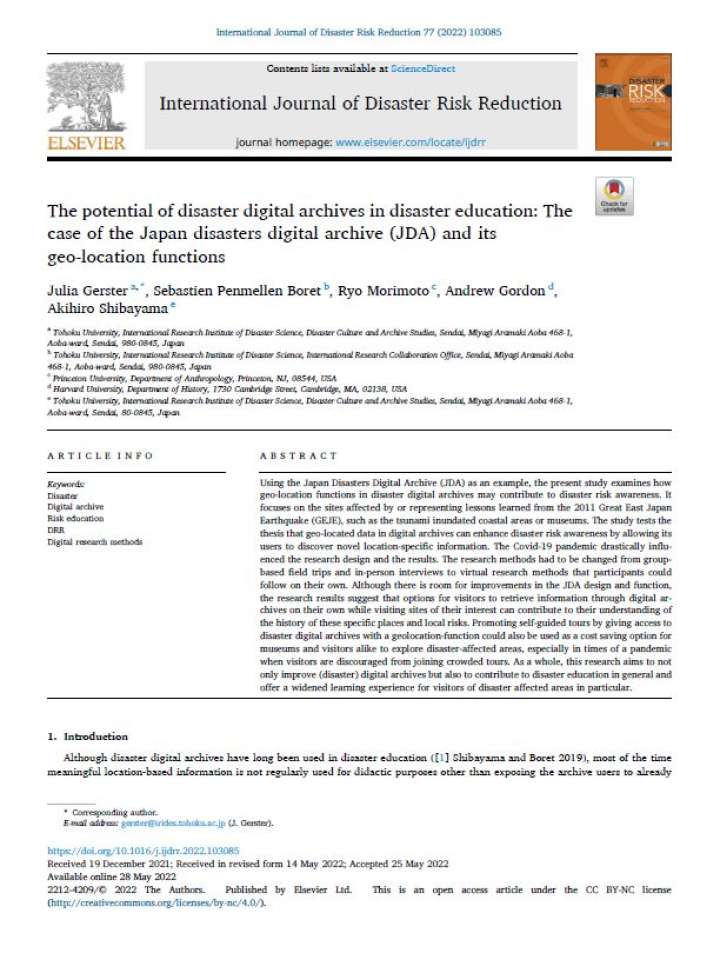The potential of disaster digital archives in disaster education: The case of the Japan disasters digital archive (JDA) and its geo-location functions
The study tests the thesis that geo-located data in digital archives can enhance disaster risk awareness by allowing its users to discover novel location-specific information. Using the Japan Disasters Digital Archive (JDA) as an example, the study examines how geo-location functions in disaster digital archives may contribute to disaster risk awareness. It focuses on the sites affected by or representing lessons learned from the 2011 Great East Japan Earthquake (GEJE), such as the tsunami inundated coastal areas or museums.
Although there is room for improvements in the JDA design and function, the research results suggest that options for visitors to retrieve information through digital archives on their own while visiting sites of their interest can contribute to their understanding of the history of these specific places and local risks. Promoting self-guided tours by giving access to disaster digital archives with a geolocation-function could also be used as a cost saving option for museums and visitors alike to explore disaster-affected areas, especially in times of a pandemic when visitors are discouraged from joining crowded tours. As a whole, this research aims to not only improve (disaster) digital archives but also to contribute to disaster education in general and offer a widened learning experience for visitors of disaster affected areas in particular.
Explore further
